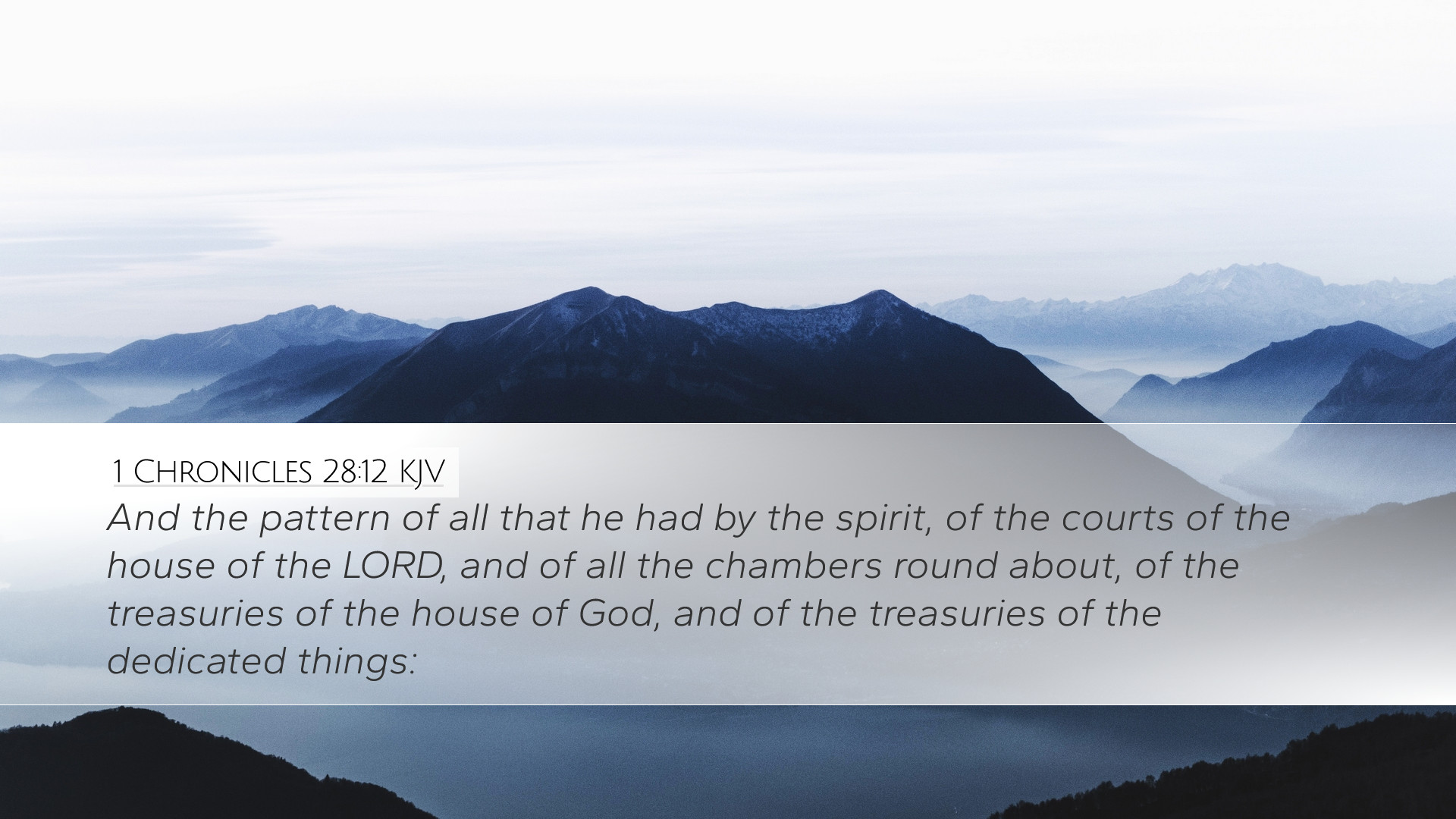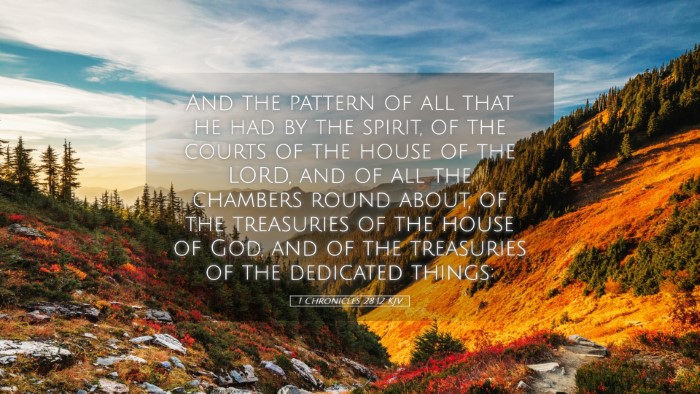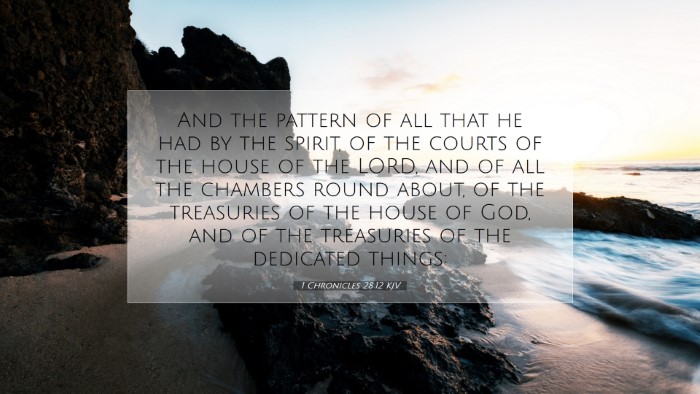Commentary on 1 Chronicles 28:12
Verse: "And the pattern of all that he had by the Spirit, of the courts of the house of the Lord, and of all the chambers round about, of the treasuries of the house of God, and of the treasuries of the dedicated things."
Introduction
This verse, found in the context of King David’s instructions to Solomon regarding the temple, reveals significant theological and practical insights. It reflects a pivotal moment in the life of Israel as David prepares for the construction of the temple, a sacred dwelling place for the Lord. The mention of the divine pattern reveals God's active role in guiding his people towards worship, which is fundamental for understanding sacred architecture in the biblical narrative.
The Pattern Given by the Spirit
Insight From Matthew Henry:
- Henry notes that David’s explanation of the pattern indicates divine inspiration, emphasizing that the structure of the temple is not merely a human endeavor but ordained by God.
- The Spirit’s involvement underscores that true worship must be aligned with God’s intentions and designs.
Insight From Adam Clarke:
- Clarke elaborates on the idea that the pattern outlines every aspect of the temple, suggesting a meticulous provision from God for worship and service.
- He highlights that this pattern encompasses both the spiritual and physical dimensions of worship, reaffirming that God is concerned with the details of how He is to be worshipped.
The Courts and Chambers
Insight From Albert Barnes:
- Barnes notes the significance of the courts and chambers, indicating they are spaces designed for specific purposes in worship.
- He emphasizes the need for separation in worship spaces, which reflects the holiness of God, thus maintaining a sacred atmosphere within the house of the Lord.
The Treasuries of the House of God
This verse also highlights the treasuries, which represent the resources dedicated to God’s work.
- Commentary Insight: According to Henry, the treasuries are indicative of the offerings and gifts that the people of God contribute to sustain worship.
- Clarke points out that these treasuries are meant for sacred items, highlighting the principle of dedicating our resources to God’s service.
- Barnes asserts that these treasuries represent both material wealth and spiritual treasures, suggesting a holistic approach to devotion.
The Dedication of Things
The concept of "dedicated things" serves as a reminder of the importance of consecrating our gifts and offerings to God.
- Theological Reflection: As Henry reflects, this dedication is an act of worship that acknowledges God’s sovereignty over all of life’s provisions.
- Clarke adds that dedicating sacred items signifies the people's commitment to keeping God at the center of their endeavors, thus invoking His presence.
- Barnes concludes that this dedication establishes a covenant relationship between God and His people, where the offerings symbolize their faith and obedience.
Lessons for Worship Today
This passage holds several implications for modern worship practices:
- Divine Guidance: It is imperative for worship leaders and congregations to seek divine guidance in their worship settings, ensuring that their practices align with God’s revealed will.
- Holiness in Worship: The design and layout of church spaces should reflect the holiness of God, encouraging a reverent atmosphere conducive to worship.
- Stewardship: The principles of tithes, offerings, and the responsible use of church resources must be upheld, recognizing them as acts of devotion directed toward God’s service.
- Dedication: Every element of worship, be it time, talent, or treasure, should be viewed as an act of dedication to God, prompting congregants to consider how they can contribute to the life of the church.
Conclusion
1 Chronicles 28:12 encapsulates critical themes of divine inspiration, holiness, stewardship, and dedication within the context of worship. It calls upon pastors, students, theologians, and scholars alike to reflect deeply on the nature of worship and the multifaceted ways in which we can present ourselves and our resources before God. In a world where the church is challenged to remain relevant, returning to the principles outlined in this passage can strengthen the foundation of worship and service to the Lord.


